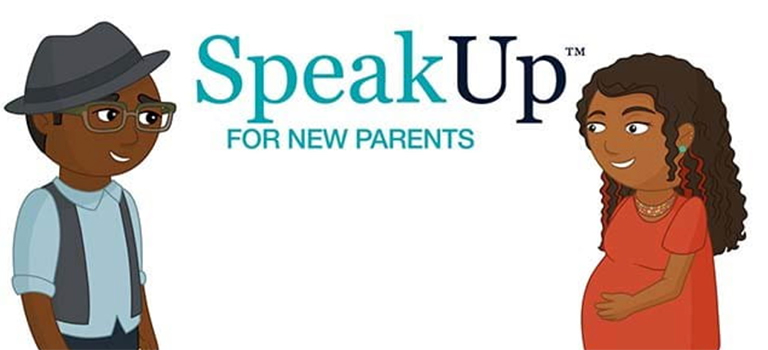Having a baby is a life-changing experience for new parents. It is important to be alert to signs and symptoms that you need to get medical help. Remember, if you or your advocate think something is wrong, speak up!
Know how to spot signs of hypertension and preeclampsia
Before, during and after pregnancy you may have high blood pressure, also called hypertension. It can occur with preeclampsia, a serious condition that can affect your baby and lead to other problems. Contact your OB provider if you experience any of these symptoms:
- Swelling
- Headaches
- Pain in your lower back or shoulders
- Pain in your upper right side not related to contractions
- Nausea
- Sudden weight gain of more than 3 to 5 pounds
- Vision changes
- Shortness of breath
Tips:
- Never miss a prenatal doctor visit.
- Be sure your OB provider checks your urine for protein.
- Keep a record of your blood pressure so you will know if it changes.
- Count your baby’s “kicks.” After you eat a meal, lay down. Your baby should move about 10 times in an hour. If you do not feel your baby moving as normal, contact your OB provider.
How to spot signs of hemorrhage
Hemorrhage is severe bleeding during or immediately after birth. Call a nurse or ask for help if you think you are bleeding more than you should be. Warning signs of hemorrhage include:
- Soaking a pad in less than an hour
- Developing large, quarter-sized blood clots
- Dizziness after getting up from a chair or bed
- Increased heart rate
- Shortness of breath
- Weakness
- Not having to urinate
- Feeling cool or clammy
- Feeling thirsty
Tips:
- Early in your pregnancy, let your OB provider know if you have anemia, a history of bleeding, have received blood, or if you plan to decline receiving blood during an emergency.
Be aware of the signs of infection
New moms are at risk for infection. Call your OB provider if you experience any of these signs:
- Low-grade fever
- Chills
- Lower abdominal pain
- Muscle aches
- Fatigue
- Foul-smelling discharge
- Warm, painful redness near surgical incision site
- Headaches
- Paleness
- Loss of appetite
- Rapid heart rate
Tips:
- Wash your hands often.
- Watch to see that caregivers wash their hands.
- Ask visitors to wash their hands.
Ask for help if you are feeling symptoms of depression
It’s not unusual for new mothers to experience the baby blues. If you have any of the following signs for longer than two weeks after giving birth, you may need to seek help:
- Difficulty eating or sleeping
- Feelings of helplessness or sadness
- Not wanting to get out of bed
- Avoiding contact or bonding with your baby
- Thoughts of harming yourself or your baby
Tips:
- Know that you are not alone. Postpartum depression affects 10 to 20% of new mothers.
- Talking about these feelings with your OB provider is important and there are resources to help.
If you have any questions or concerns talk to your OB/GYN or text our Pregnancy Nurse Navigator at 225-314-8485.
The goal of the Joint Commission’s Speak Up patient safety program is to help patients and their advocates become active in their care.

